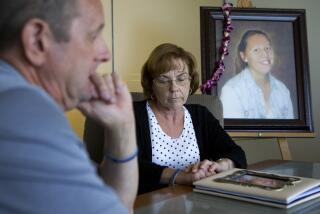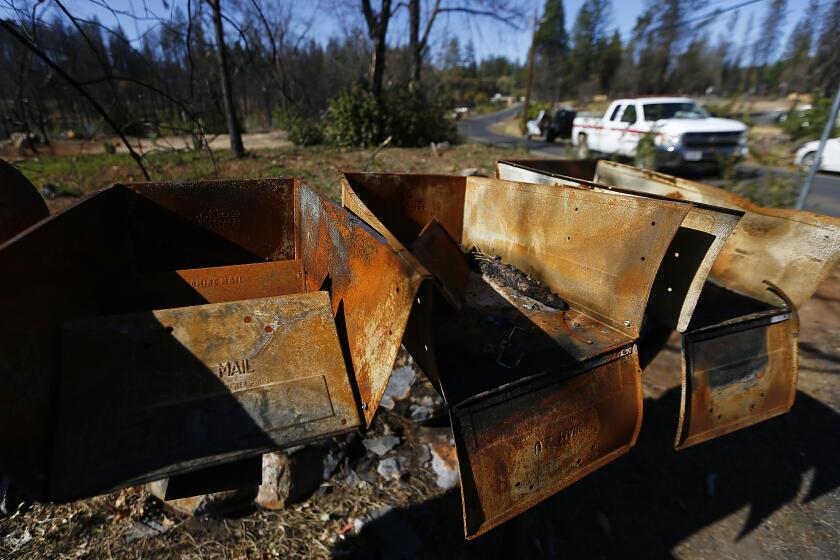Health 411: How insurance changes will affect disabled
I am curious about all this talk about health insurance. What if you are not employed (permanently disabled) and have Medicare Part A only? I cannot afford the premium for Part B, nor do I qualify for Medi-Cal. I have a 22-year-old son who no longer has any health insurance. His Medi-Cal insurance was canceled when he turned 21.
What are people like us supposed to do about this mandatory health insurance law?
Without a doubt, the most contentious aspect of the Affordable Care Act is its requirement that most Americans have health insurance coverage. There are currently 26 federal lawsuits in play attempting to overturn the law, and the constitutionality of this requirement — the so-called individual mandate — is at the heart of the fight.
Whether you agree that everyone should be required to carry health insurance or you feel the mandate is an overreach of the federal government’s authority, it’s helpful to understand the economic rationale behind it. It was put in place largely because of another stipulation of health reform — that, starting in 2014, insurance companies will no longer be allowed to deny people coverage on the basis of their medical condition.
“One of the reasons insurers currently deny coverage to people with pre-existing health conditions is because the people who are most likely to buy insurance on their own are those who really need it,” says Sara Collins, vice president of the Commonwealth Fund, a New York City-based private healthcare foundation. Those people use more services and are far more costly to insure than people who are well. That’s why, when people with health problems do get coverage, insurers go out of their way to underwrite and charge them higher premiums, Collins adds.
Without the mandate for everyone to purchase insurance, the 2014 changes would place health insurers in a bind. It would be financially unsustainable to require them to cover people with serious medical conditions while at the same allowing healthy people to go without insurance and wait until they get sick to purchase a plan. If, however, everyone has health insurance, the costs can be shared — between people who are well and use fewer medical services and those who are sicker and use more.
That’s the reason for the individual mandate. “The requirement that everyone has insurance will ensure that everybody is in the pool, not just people who are sick,” Collins says.
But the law does more than require everyone to buy insurance. It’s also set up to help people pay for coverage. You and your son, in fact, are among those with the most to gain from the law.
As of 2014, anyone with an annual income of up to 133% of the poverty level qualifies for Medicaid coverage (in California, the Medicaid program is called Medi-Cal). For one person, that translates to an annual income of $14,484 or less. For a family of four, it’s $29,327 or less.
“One of the things the Affordable Care Act does is if you’re at [or below] 133% of poverty, no matter what your other circumstances are, you’re in,” says Richard Frank, professor of health economics at Harvard University.
Middle-income people also will be eligible for assistance under the law. A family of four making as much as $89,400 will get help paying for their health insurance if they purchase a plan through one of the state-based insurance exchanges (marketplaces where people who don’t get insurance through work can buy a plan starting in 2014). Premium costs will be capped on a sliding scale somewhere between 3% to 9.5% of a household’s income. There also will be income-related limits on co-payments and deductibles.
Put together, all these sources of aid “really will make our health insurance system universal,” Collins says. “But in order to achieve that, everyone has to be in the pool.”
How do you get a death certificate amended to reflect the actual cause of death when a doctor put down a false cause to try to conceal the actual cause?
Wanting to change the cause of death listed on a death certificate is fairly common, says Craig Harvey, chief of operations for the Los Angeles County Coroner. But families rarely are successful in altering the certificate, even after an autopsy. “The hope that something will dramatically change usually doesn’t come to fruition,” Harvey says.
Although it’s clear from your question you doubt the doctor’s motives, it’s worth asking him or her to meet with you to discuss your loved one’s case, if you haven’t already. Often, doing so brings poorly understood details of the person’s death to light and leads to a resolution, says Dr. Mary Ann Sens, president of the National Assn. of Medical Examiners, a professional organization based in Marceline, Mo.
“Many times, the family or loved one simply doesn’t understand the information that’s on the death certificate,” Sens says.
Still, both Sens and Harvey acknowledge that mistakes do occur. Often they are innocent; once in a great while, the wrong cause of death is filed in an effort to cover up a mistake.
If you believe the cause of death listed on a death certificate is wrong, your first step is to contact the person who signed it, which in most cases is the treating physician. In many states, including California, that person — other than a judge, the coroner or medical examiner — is the only one who can change the listed cause of death.
In some states, survivors have no recourse if they disagree with the cause of death listed on the death certificate, Sens says. However, if the certificate was signed by a physician and you have concerns about the doctor’s conduct, you can bring a complaint to your state’s medical board. If the doctor has privileges at a hospital, you can contact its quality assurance department to express your concerns and request an inquiry into your case.
In some states, including California, you can take your case to superior court to request a change to the certificate. Typically, a judge weighs the competing evidence and issues a ruling. If there’s reason to believe the cause of death was unnatural (an overdose of medication, a homicide or an accident, for example), the judge can order an autopsy and the case would go to the coroner or medical examiner. Cases that fall under the jurisdiction of the coroner or medical examiner are typically those involving an unnatural death.
In many other states, the best course of action is to appeal the cause of death through the coroner or medical examiner system even if the death was not caused by trauma or other unnatural causes. Typically, that will result in a review of the case by a group of doctors, Sens says.
You also have the right at any point to request a private autopsy to determine the cause of death. The hospital where the person was treated is a good place to start; at a family’s request most will conduct an autopsy. Hospitals receive federal money through Medicare for precisely this purpose, and so in many cases will conduct the autopsy at no charge, regardless of the type of insurance the patient had. In some parts of the country the cost of autopsy must be covered by the family requesting it. You have to ask.
For a price, the coroner or medical examiner’s office in most states will also conduct an autopsy at a family’s request. Cost varies across the country; Harvey says the price through his office is roughly $7,200. In cases where an unnatural cause of death is discovered and it contrasts with the reason listed on the death certificate, your money will be returned to you.
Many other facilities conduct private autopsies. Check the website of the College of American Pathologists to find a doctor in your state who conducts autopsies (Go to https://www.cap.org/apps/cap.portal and click on “Resources & Publications,” then “Autopsy” and “View list of autopsy consultants” under the heading “Fee for Service Providers”).
The National Assn. of Medical Examiners provides resources on its website (thename.org; go to FAQs). Funeral homes are another resource of referral for private autopsies.
Zamosky has been writing about how to access and pay for healthcare for more than 10 years. She may answer your question in a future column but regrets that she cannot personally respond to all emails.
Got a healthcare dilemma? Email health411@latimes.com or write to Health 411, Los Angeles Times Health, 202 W. 1st St., Los Angeles, CA 90012.
More to Read
Inside the business of entertainment
The Wide Shot brings you news, analysis and insights on everything from streaming wars to production — and what it all means for the future.
You may occasionally receive promotional content from the Los Angeles Times.










